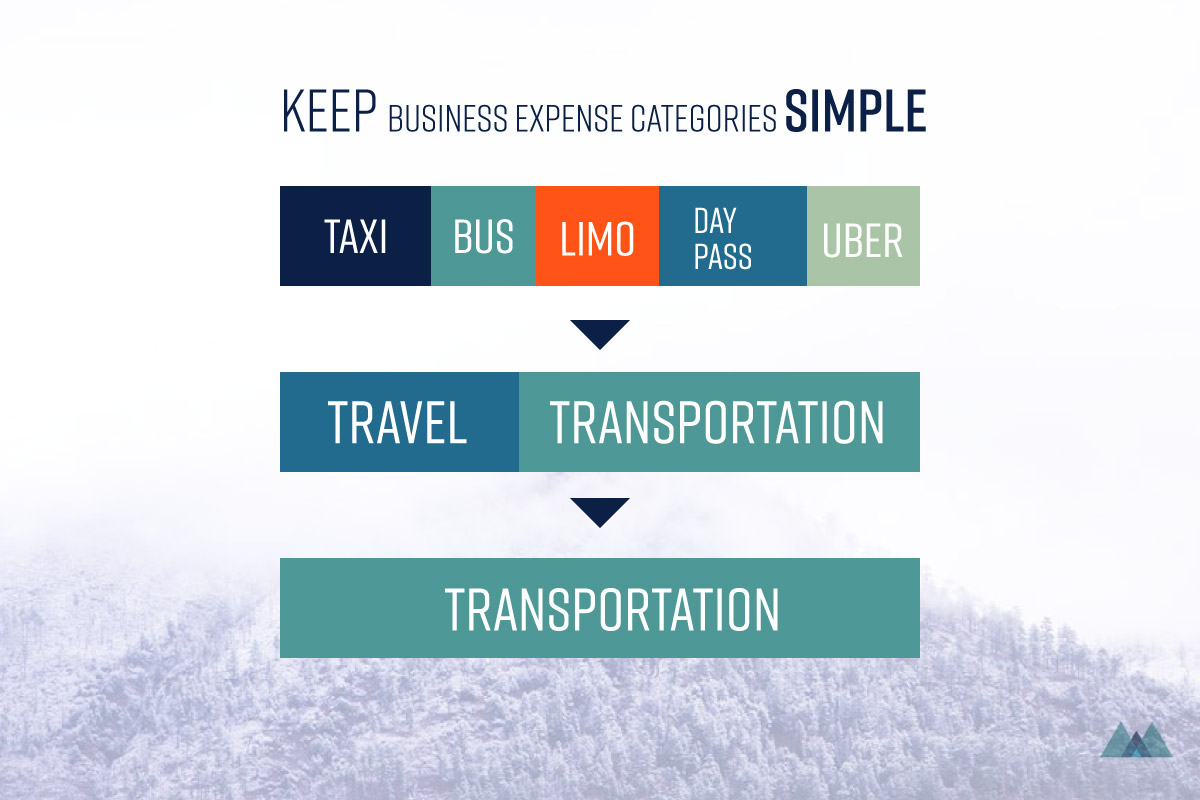
Your business spends money and you need to record it. When you record your expenses well, you can claim more tax deductions. Whether you DIY or outsource bookkeeping, here are some organizational practices to keep in mind. The key is keeping bookkeeping categories simple!
Keep your bookkeeping categories simple
Among bookkeeping categories, more complex one is usually about recording business expenses. Sometimes it’s a challenge to decide what category you should put an expense into. CRA provides a straightforward list of business expense categories.
Try not creating new business expense categories unless absolutely necessary. Besides some basic expense categories that all businesses will have (advertising, meals & entertainment, etc.), the specific accounts that you need will be unique to your business. Accounts should only be selected to capture general categories of revenue and expenses and any specific accounts should be created to capture and report on items that are critical to your business.
E.g. you have receipts for: Taxi $37.50; Uber $8.00; Bus tokens $136.00; Transit Day Pass $15.00; Airport Limo $60.00. When you look at the expense accounts, you see one called “Transportation” and one called “Travel”. You may wonder if you should create new accounts called “Taxis & Uber”, “Public Transit” and “Airport Limo”. The answer is no. Creating new account categories won’t add value to your company.
Don’t worry too much about how specific the expense categories are. The key is to categorize the same or similar expenses with consistency.
Going back to the example above, should the Airport Limo receipt be recorded under “Travel”? There is no rule that says transportation to the airport can’t be categorized under travel. But stop and think for a minute: can I apply this rule consistently? What if someone takes an Uber to the airport or a regular taxi and there is no indication of the destination on the receipt? It’s easier to just include these types of expenses under “Transportation”.
2 expense categorize to be cautious
- Meals & Entertainment. This expense category is 50% tax deductible (for income and sales tax) so you want to properly isolate these expenses in a Meals & Entertainment account (e.g. client dinners, staff lunches, etc.).
- Payroll-related expenses. These expenses should be carefully recorded for reporting, government remittance, and other reconciliation purposes.
Set a System for Checks & Balances
It is best to designate one person to do bookkeeping for the business. This will avoid duplication of entries and provide consistency in how records are kept.
The individual that enters bills and prints cheques (or submits items for payment by some other method) should not be the same person that signs cheques or approves payments. A second person should review and approve payments, if possible. This will provide more control over expenses and cash flow.
Obviously, the division of duties will be impossible for a solo endeavor or a freelancer. But it is something to keep in mind when the business expands to include other individuals.
Created by Novus Accounting & MoneySherpa

Time's up
